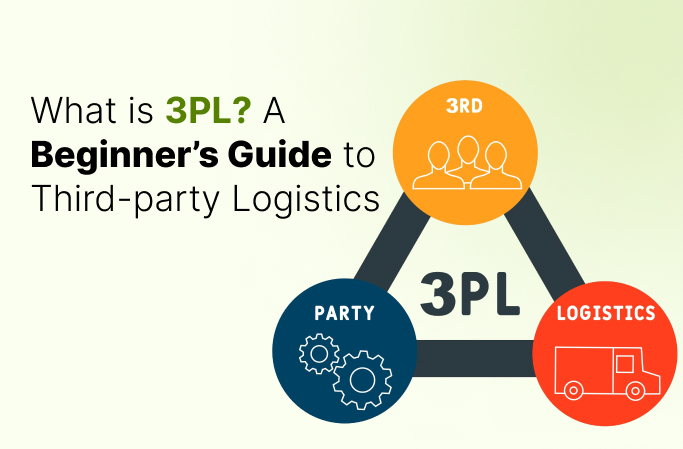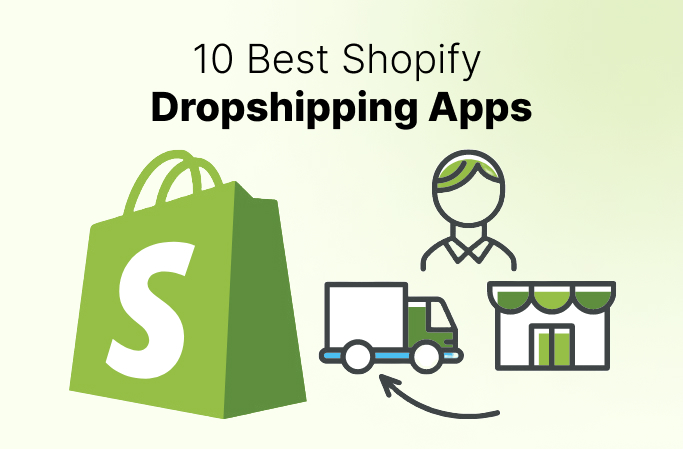The Ultimate List of Affordable Shopify Alternatives for Small Businesses
 Shopify is undoubtedly the most popular and widely used E-commerce platform worldwide. The platform aims to ease the hassle of setting up an online store for beginners – that’s even without using a single line of code. In simple words, Shopify is a go-to platform for businesses who want to start an online e-commerce business right away without any prior experience.
Shopify is undoubtedly the most popular and widely used E-commerce platform worldwide. The platform aims to ease the hassle of setting up an online store for beginners – that’s even without using a single line of code. In simple words, Shopify is a go-to platform for businesses who want to start an online e-commerce business right away without any prior experience.
While Shopify offers plenty of benefits and ecommerce advantages, it doesn’t mean it is the only available option. The recent enhancements and policy changes have made users search for the best Shopify alternatives. If you’re a Shopify merchant, you might have experienced some flaws with the platform and wanted to switch but couldn’t due to the lack of knowledge about other available options.
So, if you’re looking for the best e-commerce platform other than Shopify or are fed up with its policies and thinking of switching, we have curated a list of the top 10 Shopify alternatives you should try in 2024. Before that, let’s take a look at some statistics on Shopify and its competitors.
- Shopify holds a massive share of the ecommerce platform market, with around 17%. However, WooCommerce, a self-hosted WordPress plugin, takes the lead at nearly 67%. (Source: 6sense)
- In 2023, Shopify raked in an impressive $7 billion in revenue, showcasing the platform’s success in empowering businesses. (Source: The Social Shepherd)
- Shopify has significantly contributed to the global economy, with estimates suggesting it facilitated a whopping $444 billion in economic activity in 2023. (Source: The Social Shepherd)
- Nearly 25% of traffic on Shopify stores comes from mobile devices, highlighting the increasing importance of mobile-friendly storefronts. (Source: The Social Shepherd)
- The fashion industry thrives on Shopify, with over 500,000 stores selling apparel on the platform, making it the most popular product category. (Source: The Social Shepherd)
Reasons Why You Should Look for a Shopify Alternative
Shopify’s limitations on several aspects may prompt its existing and potential users to search for better alternatives. Here are the three main reasons why you should look for a Shopify alternative:
Cost Considerations
Cost consideration is the biggest driver behind users looking for better alternatives. Apart from paying for Shopify plans, there are additional transaction fees if you opt for payment gateways other than Shopify Payments, which aren’t globally available.
At the same time, there are also credit card processing fees, and though they are reduced marginally with higher-tier plans, they remain an added expense. Moreover, most apps in the Shopify marketplace aren’t free, adding to the cost.

Dependency on Third-Party Apps
While Shopify powers several successful online stores, their efficiency often hinges on the selected third-party apps rather than Shopify alone.
The marketplace boasts a plethora of apps, but their cumulative monthly fees can be unexpectedly hefty, especially when essential apps are factored in.
Learning Curve
Shopify markets itself as user-friendly, and while it’s more accessible than some platforms, mastering it isn’t effortless. The abundance of tutorials and experts indicates a significant learning curve, suggesting that Shopify might not be as straightforward as advertised.
Top 10 Affordable Shopify Alternatives for Businesses

After figuring out the features of your eCommerce platform, it’s easy to find the best alternative to Shopify. Here’s a list of the top 10 Shopify alternatives you should consider right now:
#1. WooCommerce
Popular as a top Shopify alternative, WooCommerce is well-regarded for its free, open-source nature and superior user experience ratings. It’s often touted as surpassing Shopify in various aspects.
WooCommerce is designed to be mobile-responsive, simplifying the creation of mobile-optimized sites. The only cost is for hosting, as WooCommerce doesn’t require a recurring subscription.
Advanced functionalities are accessible via a single payment, though it’s worth noting that WooCommerce may present challenges in troubleshooting.

Advantages
- Zero transaction fees
- Effortless WordPress Integration
- A suite of features fostering creative freedom
- Simplified one-click upsells after purchase
- User-friendly setup process
- Unlimited product listings
- A plethora of free and premium extensions
Drawbacks
- Hosting not provided
- Technical proficiency required
- Potential for occasional clumsiness in performance
- Possibility of sluggish hosting service
#2. BigCommerce
For those seeking an uncomplicated and streamlined online store setup, BigCommerce emerges as a solid contender. It boasts a user-friendly drag-and-drop interface that simplifies website development.
The platform offers an array of eye-catching themes to enhance your store’s appearance, seven of which are free. If you’re aiming for more customization, premium themes are an investment. In terms of performance, BigCommerce’s loading times may lag behind competitors.
The subscription for BigCommerce begins at $29.95 per month for the basic package, escalating to $299.95 per month for advanced features. The cost will align with your inventory size and sales revenue.

Advantages
- A variety of built-in visual editors featuring drag-and-drop functionality
- Over 55 secure payment options without transaction fees
- Capabilities for selling across multiple channels
- A selection of free apps, including Instagram checkout integration
- Customizable URLs and robust SEO tools
- Suitable for various business models
Drawbacks
- The pricing structure may be complex for newcomers
- Initial setup might require some technical know-how
- A limited selection of free themes
- Inconsistent site loading speeds
#3. PrestaShop
PrestaShop is one of the best Shopify alternatives for those looking to start an e-commerce business on a low budget. While it’s technically free, you’ll still need to invest in a hosting package and a domain name. PrestaShop has partnered with Azure, WebHostingHub, and 1&1.
When it comes to themes and templates, PrestaShop doesn’t quite measure up. However, its user-friendliness is comparable to that of Shopify.
There are no extra transaction fees, and it supports up to 25 languages and multiple currencies. With the help of a skilled developer familiar with PrestaShop, you can set up an impressive online store without breaking the bank.

Advantages
- It’s open-source and free
- No extra transaction charges
- Multilingual support
- A broad array of features
- Freedom to host your store on any server or with any hosting provider
Drawbacks
- Limited themes and templates
- Not as feature-rich as Shopify
- Requires significant technical skills
#4. Dukaan
Dukaan is an excellent option for B2C and D2C businesses seeking a comprehensive e-commerce solution. As a robust SaaS platform, Dukaan allows you to establish your own e-commerce store in less than a minute. The platform’s unique selling point is its user-friendly interface and high scalability, which means you don’t need any coding skills to use it.
Dukaan provides a range of potent e-commerce features that are easily accessible from its dashboard. Despite its advanced capabilities, the platform has no learning curve, making it truly unique.
Customizing a store on Dukaan is also straightforward. All themes in the platform’s library are free to use, optimized for quick loading, and mobile-responsive. Additionally, those with technical expertise can customize their store using custom CSS.

Advantages
- User-friendly interface
- Quick setup
- Ability to sell an unlimited number of products
- No transaction fees when linked to your own payment gateway
- No technical knowledge is required
- Highly optimized loading speed
- Backed by a global network of over 22 data centers
Drawbacks
- Not suitable for B2B businesses
- A limited selection of themes
- Basic analytics section
- Does not support dropshipping
#5. Shift4Shop
In 2020, Shift4 acquired 3DCart, which is now rebranded as Shift4Shop. This platform is a commendable choice for e-commerce entrepreneurs and one of the solid Shopify alternatives. For US residents, Shift4Shop provides a comprehensive e-commerce solution at no cost.
For those residing outside the US, the pricing begins at $29 per month and can go up to $229 per month. This pricing includes access to a variety of SEO tools, email follow-ups for abandoned carts, and options for personalized products.
However, the platform’s performance can be a bit slow, and the theme variety is somewhat limited. Additionally, their customer support has received less than stellar reviews.

Advantages
- Supports numerous popular payment gateways
- Provides excellent ecommerce store speeds
- Allows customizations through HTML and CSS
- Offers incredibly fast loading times
- Allows unlimited product listings
- More advanced than Shopify with no transaction fees
- Affordable for both startups and large corporations
Drawbacks
- Customer support has received mixed reviews
- Shopify offers a better mobile user experience
- Users may encounter issues during upgrades
- Shopify provides a superior user experience and dropshipping service
- The setup process can be slightly challenging for beginners
#6. OpenCart
OpenCart is a cost-free alternative to Shopify that offers a relatively updated platform for crafting professional and customizable websites.
OpenCart boasts robust documentation and a substantial user base. It also supports a multitude of add-ons and third-party modules, catering to the diverse needs of most ecommerce clients.

Advantages
- Suitable for a wide range of ecommerce stores
- Offers flexibility and supports various payment gateways
- Enables rapid setup and swift store launches
- Supports multiple payment gateways
Drawbacks
- User-friendliness is not on par with Shopify
- The support and documentation may be challenging for novices
- Not the most straightforward platform to use
- Doesn’t offer as many add-ons as Shopify
#7. Squarespace

Squarespace is an ideal platform for budding entrepreneurs with a limited range of products. It offers a robust website-building tool and a variety of templates to kickstart your online business. With a bit of customization, you can create a top-notch online store.
The pricing is affordable, with the basic plan starting at $19 per month and the advanced package at $49 per month. These plans offer unlimited access to pages, blogs, galleries, and contributors and also include a free domain and storage, among other features.
However, it’s important to note that Squarespace only supports online payments through PayPal and Stripe. It also offers some marketing tools such as AdWords, MailChimp, and Amazon Affiliates tracking.

Advantages
- Perfect for small-scale businesses
- User-friendly setup
- No coding skills required
- Offers a variety of impressive themes
- The website builder is easy to navigate, simplifying backend work
Drawbacks
- Does not support integration with tracking code API for visitor tracking
- Limited customer support
- Limited multi-channel features
- Website load time could be improved
- Offers fewer add-ons compared to Shopify
#8. X-Cart
X-Cart is an efficient and user-friendly ecommerce solution. It’s marketed as a comprehensive solution for your online business needs, packed with a multitude of features. The pricing structure ranges from $199 per month to $399 per month, with each tier offering additional features.
This robust platform offers limitless customizations, enabling skilled developers to effortlessly build an outstanding online store and positioning it as a strong alternative to Shopify.
However, it’s worth noting that the company’s support in case of issues may be lacking. They tend to attribute problems to your servers, leaving you to resolve the issue independently.

Advantages
- Equipped with a wide range of advanced features
- The virtual server performs exceptionally well
- Simple setup and usage
Drawbacks
- Finding developers for X-cart can be challenging and potentially costly
- The company is known to attribute issues to your server
#9. Weebly
Weebly is a user-friendly hosted platform that serves as a cost-effective alternative to Shopify for those looking to establish an online store without breaking the bank. While Weebly may not offer as many features as Shopify, its highest-priced plan is significantly more affordable than Shopify’s Basic Plan.
Weebly is an excellent choice for creating a website using a straightforward builder. It’s designed for ease of use, allowing you to get your website up and running in no time. However, if you’re planning to expand your business significantly, Weebly might not be the best choice due to its limited scalability.

Advantages
- Cost-effective
- Simple and quick to set up
- Ability to launch your website swiftly
- A variety of apps and tools are available
- Facilitates team collaboration and includes membership areas
- Provides a free domain name
- Offers a free trial
Drawbacks
- Limited scalability
- Not ideal for stores with high sales volume
#10. Sellfy
Sellfy is a viable alternative to Shopify, particularly for those who aren’t technically inclined but want to establish an online store. With Sellfy, you can set up a store at no cost, but this option only allows you to list ten products. For a more extensive product listing, you’ll need to opt for their paid version, which starts at $22 per month for the basic package and goes up to $119 per month for the premium package.
Sellfy is an excellent platform for businesses selling physical goods and digital entrepreneurs who sell digital products like ebooks, audio files, or videos. If you’re not satisfied with their platform, Sellfy offers a 30-day refund policy.

Advantages
- Provides a refund policy
- No restrictions on the type of products you can sell
- Allows code customization for personalizing your store
- Includes marketing automation features
Drawbacks
- The free version is limited and doesn’t support code customization
- Merchants are responsible for payment processing fees
- The free version only allows the listing of 10 products
Conclusion
As you have seen above, there is no dearth of Shopify alternatives in the market. But the biggest question is which one suits you? Well, you need to find out your requirements and then compare the features of each of these platforms. Weigh down the pros and cons and choose the one that aligns with your needs. In case any platform doesn’t seem to meet your needs, you don’t necessarily have to invest in it. Always choose the platform that can fulfill your diverse needs.
FAQs
What is a Better Alternative to Shopify?
WooCommerce is often cited as a better alternative due to its flexibility, no transaction fees, and seamless WordPress integration.
Who is Shopify’s Biggest Competitor?
WooCommerce stands as Shopify’s biggest competitor, offering a free, open-source platform with extensive customization options.
What App is Better than Shopify?
BigCommerce is considered better by some for its built-in features and multi-channel selling capabilities without additional transaction fees.
Is Shopify Better or Dukaan?
The choice between Shopify and Dukaan depends on your business needs; Shopify offers a global reach, while Dukaan caters more to the Indian market with localized solutions.
Is Shopify Worth It Now?
Shopify remains a strong platform for eCommerce due to its ease of use, comprehensive features, and robust support system, making it worth considering for many businesses.
Top Posts
- 1Understanding Shopify Fees: A Clear Overview for New Users
Malicy.June 16, 2025
- 2How to Build an Eye-catching Shopify Landing Page?
Shopify App Development.May 6, 2025
- 311 Visually-appealing Shopify Themes for Conversion-friendly Stores
Shopify.April 29, 2025
- 4PageFly Review (2025): Is This Shopify Page Builder Worth Paying For?
Shopify.April 28, 2025
- 5Top 10 Shopify Website Design Companies in 2025
Shopify.April 14, 2025










